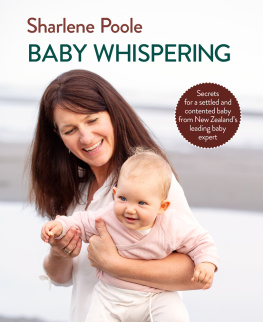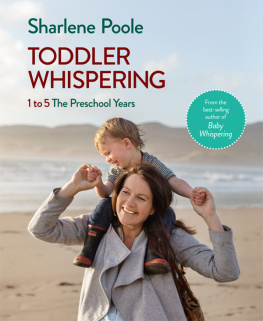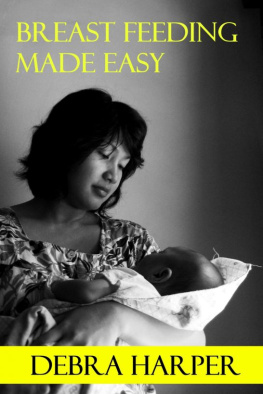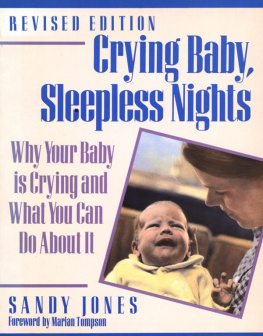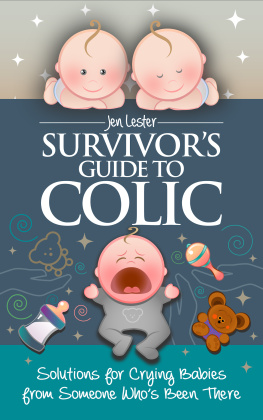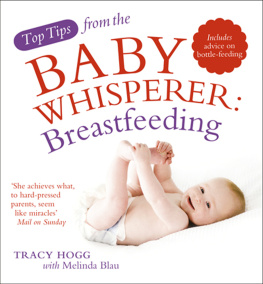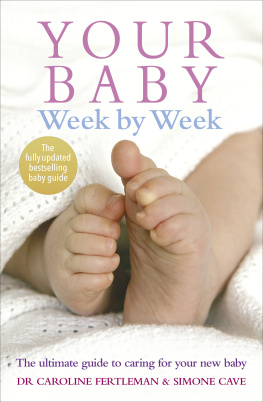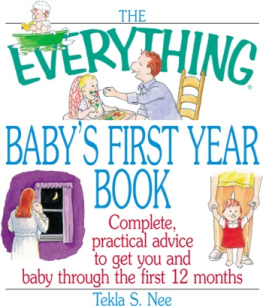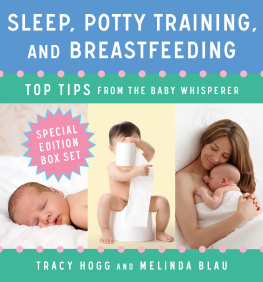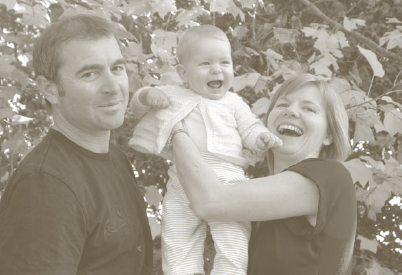Introduction
The enormity of becoming a parent and the responsibility of caring for a baby can be overwhelming; hence my desire to provide a guide for new parents based on my years of experience and observation.
My understanding and knowledge-base comes from working as an early childhood teacher and from living with many families as a British maternity nurse. During this time it became apparent to me that while we are all different, personality-wise and in our beliefs and values, many of us have a common link: the desire to bring a baby up in this world to the best of our ability and to provide a loving and happy environment for the whole family.
When I started my business in New Zealand, which is based on providing guidance and advice to new parents, I soon learnt that all parents need support in some shape or form. We all seek advice, be it from family, friends, health professionals, books or the Internet, on how to be a good parent and how to cope with being a parent.
Often couples ask, Where is the manual? when their baby is born, thinking to themselves, What do we do now that we are home? For some, it is a daunting role that lies ahead. While I do not like the word manual, I do understand why many parents in todays world ask this! We are a product of manuals and instruction at school and in the work place, and it seems only natural to wonder why, when suddenly we have the greatest and most challenging role ahead of us, there is no guide.
The concept of this book is to provide a parental guide, which offers parents and caregivers a simple and visual breakdown of the stages and changes in the first year of a babys life. It is not designed to make you feel as if there is a right or wrong way of doing anything; rather, it is intended to highlight the issues that are common for families in the first year of a babys life.
Becoming a parent is instinctive for some and less so for others; after all, we all come from different backgrounds. If, like me, you were surrounded by family and many baby cousins during childhood, motherly intuition can be ignited from an early age. Many parents I work with now, however, have never held a baby until their own is born.
I am convinced that we all have the ability to cope with being a parent, but personality, upbringing and current circumstances determine how easily we can tap into that intuition.
During the seven years I spent working as a maternity nurse in the UK, Europe, Japan, India, South Africa, Indonesia, Singapore, Russia and Australia, mostly for British ex-pat families, I gained incredible knowledge about how other cultures care for their babies and soon agreed with the saying, It takes a community to raise a child. Each job and country expanded my knowledge-base and added to my understanding of a newborns needs.
When you work 24 hours a day, six days a week for many years, you have the opportunity to see what works when trying to calm a baby and what doesnt, what some families like and others dont, while all the time gaining knowledge, asking questions and trialling methods, adapting them according to their success.
I, like so many other people, believe that babies are a product of their environment in most situations. Unless illness or health problems prevail, babies are born pure and wise, ready to be guided into the world we live in and to be nurtured through love and safe and calm surroundings.
At the beginning of my career I struggled to settle some babies. While I had training and a lot more knowledge than the new parents I was working for, I had no idea how to calm a baby who was unsettled for long periods of time and I didnt know of any other way of settling a baby to sleep other than rocking or using a dummy. It was the repetition of the job, and determination on my part, that encouraged me to create my own methods to replace or improve those that were the norm: for example, it did not sit well with me to leave a baby to cry for long periods of time each day or regularly.
Against the advice of some professionals I went back to settling a baby on the side, I went back to the belief that wind is a huge contributor to an unsettled newborn and I soon started to see great changes in the babies I was helping care for.
Since then I have continued to learn, adapt and problem-solve to gain a better understanding of the needs of individual families. I truly trust and believe in those techniques and recommendations that set me apart from other professionals in my industry caring for and advising new parents.
Chapter 1
Preparing for Arrival
Where to begin? Preparing a loving, warm and safe environment for your baby are most important elements; everything else after this is a choice, a choice to spend time researching different methods and beliefs on raising children and a choice about how much money to spend setting up your home ready for the babys arrival.
Children are born in different environments all around the world, each country having their own ways of doing things and their own ideas about what is needed when bringing a baby into this world. Working as a maternity nurse around the world, it has fascinated me to see these differences, especially the varying customs around daily practices, such as sleeping and feeding a baby, and simple things, like the products used.
Buying equipment can be a lot of fun, but much of what you may see or be advised to buy is actually not necessary. Sticking to the basics will provide you with enough to get started. It is better to spend where you find the need rather than over-stocking and never using some products; the rapid growth that a baby has in this first year is just unbelievable as is how many outfits or soft toys you end up never using!
When it comes to parenting styles you will be greatly influenced by family, friends, health professionals and written media. What you might observe and believe prior to becoming parents can change dramatically once you have your baby at home. It is important to keep an open mind about your options and ideas of what you will do once the baby has arrived. Still, having goals and plans is important and if you want to learn about raising a child, you can take full advantage of the many books and courses available in most communities. Just remember to remain open to change and new emotions.

